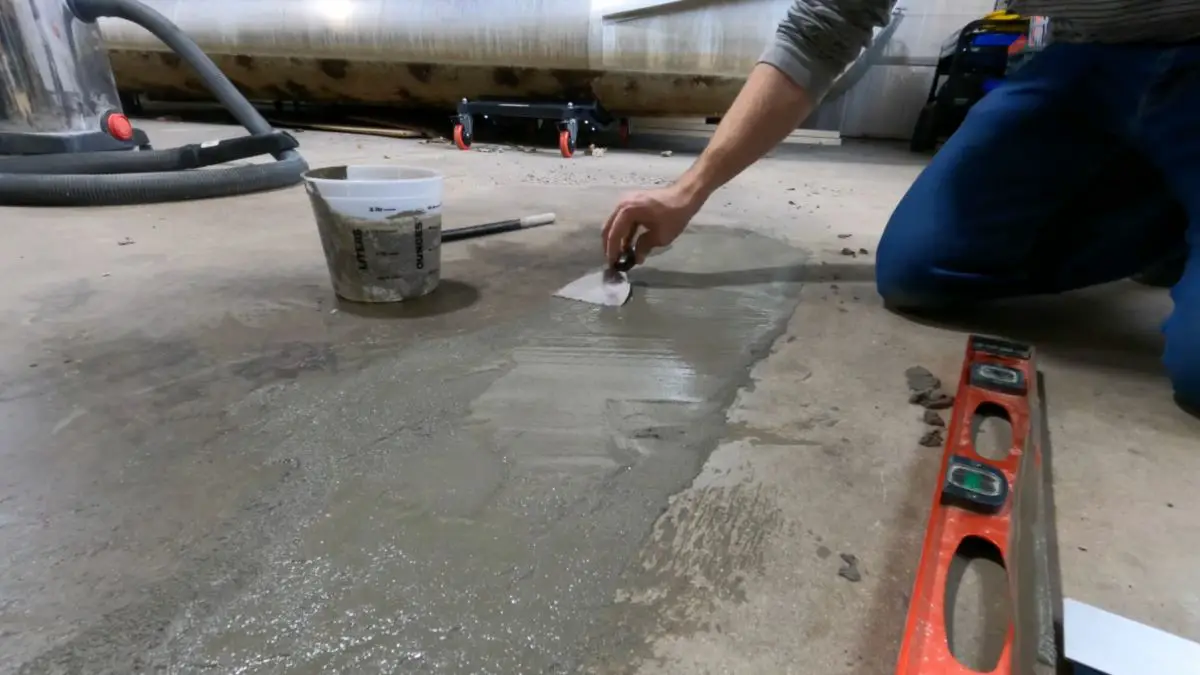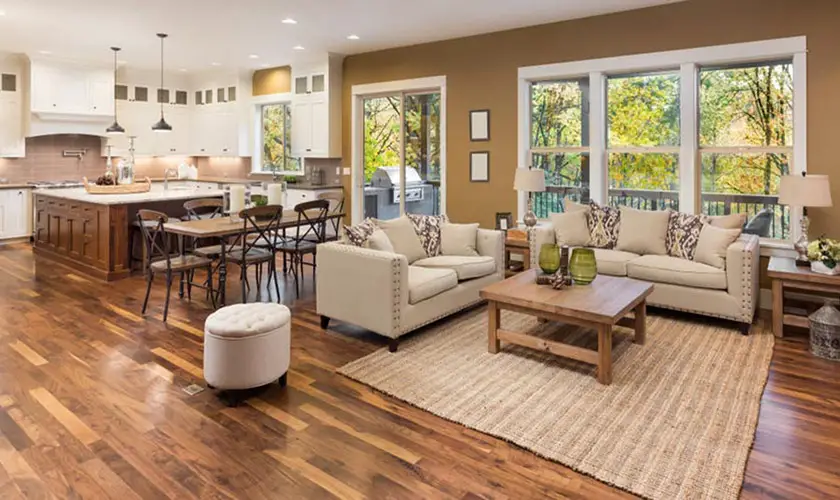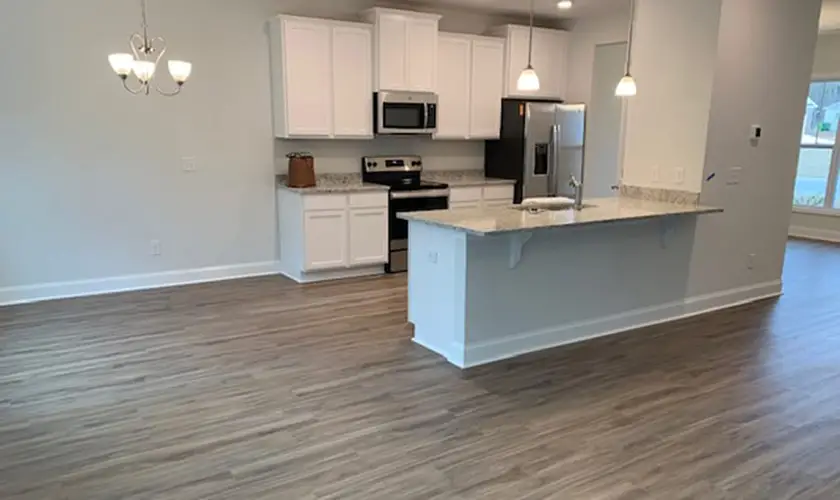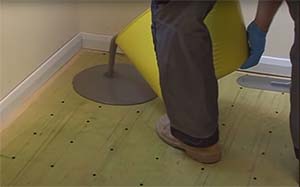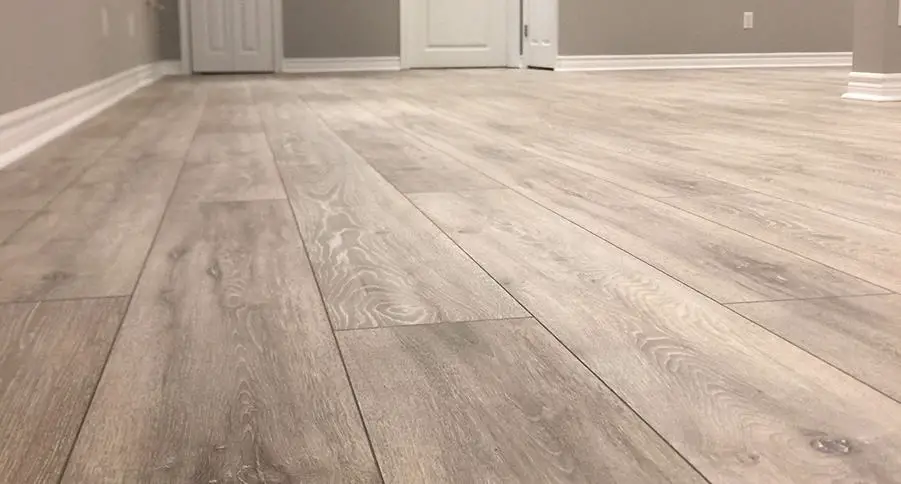
You look at your floors and think, “it is time to invest in new floorings,” but do not know where to start, so you start doing a little research. Come to find out, LVT (luxury vinyl tile) flooring has become a massive trend in the most recent years. You might be wanting to make sure you are getting the best deal for their money. After all, these planks will last quite a while in your home, and you will be the one that will look at them throughout living in that home.
A good question to ask yourself is: is LVT (luxury vinyl tile) flooring good? Given these floors have excellent durability, waterproof, stain, and scratch-resistant qualities, you can guarantee that vinyl flooring will last you a long time, ensuring the proper care and maintenance required. You will not be disappointed if you decide to get these floorings within your home.
Technology has come a long way in the past 50 years. Having the ability to pick and choose what type of floors we can get to go along with our homes is a luxury in itself. Some of us may even already know that LVT floors look similar to tile, which is a fantastic quality for the floors to have, especially if you do not want to or have the budget to get the real thing. Since we know that they are good floors to have, we will go in-depth on everything mentioned above and more.
Is LVT Flooring Durable?
A question often asked is if LVT flooring is durable. When choosing a floor, especially if you have small children or animals wandering about, you want to make sure they are suitable for those events in your life.
That being said, unlike some stone floors that may scratch easily, you can ensure luxury vinyl tile floors will not quickly get scrapes and bruises or cause any damage easily on your floors. Not being scraped easily is due to many vinyl floors having a two-layers coating on the top of the floors themselves for extra protection. These are both called:
- K-Guard & surface protection: Make your floors durable and form an extra layer of protection over your surface.
- Wear later: Provides an excess layer of protection from scratches and everyday wear.
A single vinyl plank can withstand 500 pounds of any furniture without quickly getting damaged to go into more detail. To ensure this will not happen, making sure you take any precautions by putting felt furniture pads on the bottom of your amenities would better prevent any sort of injury to your floors.
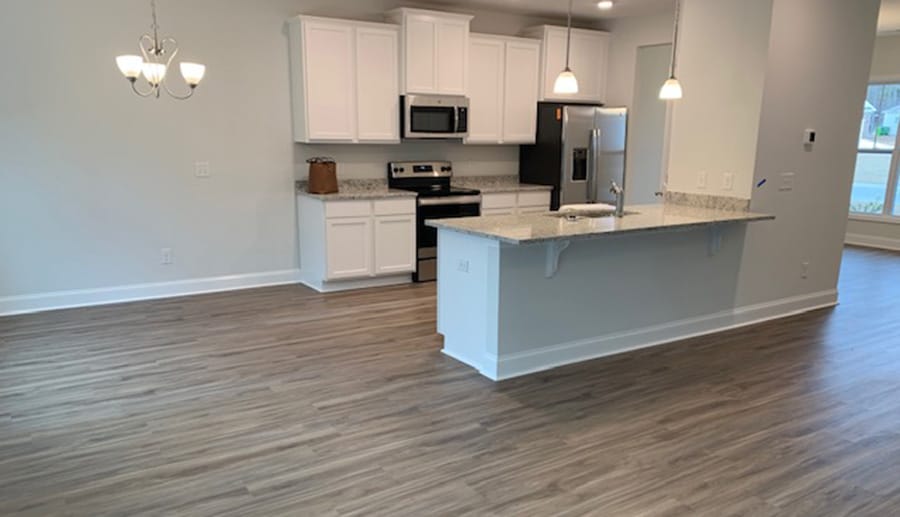
Does LVT Look Cheap?
Although many LVT flooring is relatively inexpensive, ranging from $2 to $5 per square foot, some people may think these floors LOOK cheap. After all, many porcelain tiles are anywhere between $3 to $10 per square foot, which can add up very quickly in price. As mentioned previously, you want to ensure to get the best bang for your buck.
That said, luxury vinyl tile flooring looks just that: luxury. If you get LVT in your home, you can ensure that it will look as if you have real tile flooring, just not the actual tile. The best part about these floors is that you do not have to deal with scrubbing down your grout every year or regrouting a few years down the road to keep it looking spic and span.
Does LVT Scratch Easily?
If you want to get a floor that does not scratch easily, LVT is a phenomenal option. The most apparent floors that scratch easily are mostly hardwood and softwood. To ensure your flooring’s longevity, make sure you add furniture pads under the legs and no sharp objects, such as a nail that fell off or are underneath any furnishing, are on the floor to guarantee no scratching occurs.
However, if you somehow manage to scratch your vinyl floors, you can take these steps to fix this problem:
Clean The Floor
Before anything is done, make sure your floors are clean from any grime and dirt that may be there. Cleaning the surface will guarantee the affected area on the floor will be cleaned before fixing the issue. Add 1/4th of dish detergent to a warm water bucket, then use a sponge to get a deep-clean in.
Sanding The Area Down
After cleaning, sanding the floors ensures you smooth the vinyl scratch’s place without removing the finalized product. Make sure you use light strokes going the same way as the scratch is. It is vital you take your time and don’t go extremely fast during this process.
In severe cases, a scratch may be too deep to wax it with. With this scenario, a vinyl tile replacement would be necessary.
However, here are the necessary steps to take while sanding it down:
- At first, use a 320 grit sandpaper until most of the scratch is brushed off, careful not to damage the vinyl.
- Next, repeat this process with 500 grit sandpaper.
- Lastly, use 800 grit sandpaper to ensure a smooth finish.
- Make sure the surface is smooth by rubbing your hand over the area.
- Use soap and water to clean out the site.
Waxing The Floor
In doing this, you can use either car wax or some other buffing surrogate to restore the initial shine that vinyl floors possess. Fill the whole scratch with the buffer and be careful to wipe away any extra wax. Afterwards, take a clean rag and gently rub the area to ensure the finish is smooth.
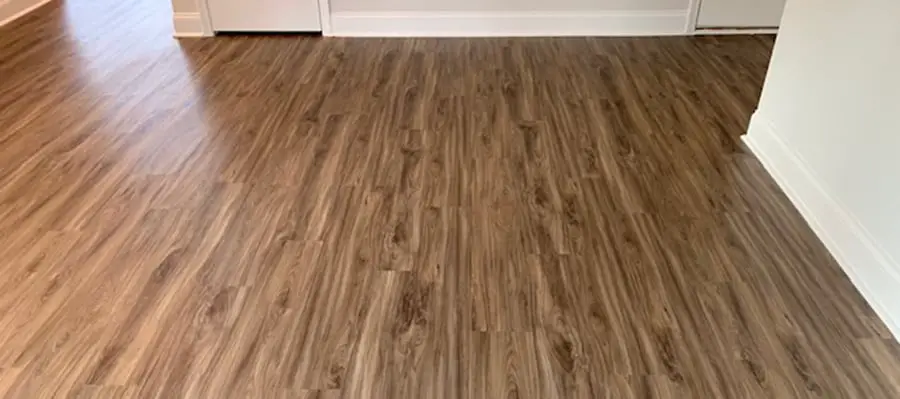
Are LVT Floors Water Resistant?
One of the many things luxury vinyl tile is known for is to be water-resistant. They make excellent additions to being in places that get the most water, such as bathrooms and kitchens. However, that ability to resist being water damaged is also somewhat a safety hazard to the ill-prepared. Due to water merely resting on the tiles’ top, they make slipping and falling a considerable possibility.
Taking the precaution to purchase shower mats or comfort kitchen mats must keep things at minimal risk. Popular locations to get the most out of these would be directly outside of the tub or shower and the sink to maximize efficiency.
How To Clean LVT Flooring?
Some people might be expecting luxury vinyl tile to be tough to clean. On the contrary, it is relatively easy and straightforward. All you have to do is a daily sweep for the high-traffic areas and mop anywhere between 2 to 4 times a month. I have LVT floors and personally use vinegar with water and soap, which works out very well.
That being said, if you have small children that make messes or play with stickers more frequently, those areas or spots may be a bit more challenging to clean up, but nothing that warm water and soap will not be able to fix.
How Thick Is LVT Flooring?
Depending on the type of quality flooring you get, it will be anywhere between 2mm to 8mm. The measurements are different because there are anywhere between 4 and 5 different layers, each layer doing other things for your floors.
- Surface protector: This is a durable surface protector that is easy to clean and maintain. Essentially, it gives an extra layer of shielding.
- Wear layer: Protects against everyday wear and tear.
- Print film layer: Showcasing the design that each product provides.
- Vinyl core: Explicitly made for the intention of being waterproof.
- Backing: Allows the floor to attach to your subfloor easily.
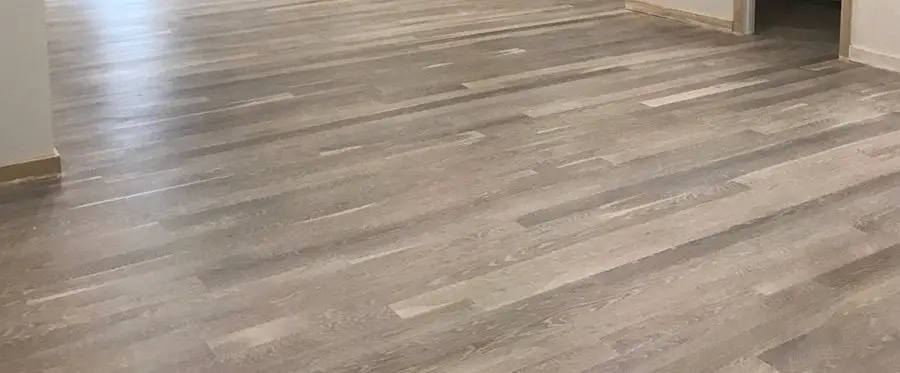
How Long Does LVT Flooring Last?
When choosing a floor for your home, one of the best qualities to know is if your floors will last a long time or not. LVT flooring is right in this aspect because they last from one to two decades or 10-20 years. Although that is the average lifespan, it has been known that these floors can last up to 50 years with proper care and installation.
That said, you may be wondering how to keep your floors lasting the longest it can. Here are a few pro tips to follow:
- Invest in blinds and curtains, since they are known to fade in the sunlight.
- Keep large rugs in each room.
- Avoid always spilling your floors with liquids.
- Make sure you sweep daily or very often.
- As mentioned before, get furniture pads for your belongings.
- Have light traffic within your home, if you can.
- Use appropriate floor cleaners, such as soap and water.
Does LVT Decrease Home Value?
Since luxury vinyl tile offers the look of real stone, these floors offer many qualities in retrospect, such as durability, thickness, waterproof, and overall, not LOOKING cheap, like we have already gone over. It will add value to your home one way or another as opposed to decreasing its value. This also means that although it is relatively inexpensive to buy, LVT floors are one of the best options in terms of what you are investing in.
On the contrary, if you live in a neighborhood more on the high-end spectrum, it would be best to use something natural, such as real wood or stone, as it is more widely accepted to use vinyl flooring in more family-oriented neighborhoods.
Pros & Cons Of Vinyl Plank Flooring
Although LVT flooring is overall good, you would want to take a deeper dive into both the pros and cons to ensure you are getting exactly what you want. Some people may want to take a more natural approach to get their floors done instead of something that looks similar. However, this does not take away the fact that LVT flooring is an excellent choice overall.
PROS of LVT Flooring
- Easy to maintain: Some floors are not so good to maintain, such as those containing grout or carpet. The most you need to do is a quick sweep with a broom or dry dust mop daily with a Swiffer or something similar to mop with 2 to 4 times a month, as mentioned earlier.
- Affordable: As mentioned before, the vinyl tile cost is reasonably priced, so you are guaranteed not to spend a fortune on the floors.
- Looks luxurious: Even though LVT floors are not expensive, they still give that luxurious look that everyone wants in a home.
- Water-resistant: As mentioned previously, one of the best features is the fact that luxury vinyl tile is water-resistant, so when you spill something, it will not damage your floors.
- Provides many floor options: One of the downfalls of having natural stone is that it does not provide many options. However, you can pick and choose what to put on your floors in terms of design and color.
- Comfortable: If you have a problem with your feet hurting from hard surfaces, there is no need to worry about vinyl flooring.
CONS of LVT Flooring
- Can cause health problems down the road: Vinyl floors emit gasses into the air called VOCs, or volatile organic compounds, which are from formaldehyde and ethanol. This means that these floors are not recommended for those with breathing problems.
- Non-biodegradable: Although LVT floors are fantastic in many regards, they are to dispose of, which can cause more pollution in the future years than it is now. Something the vinyl floor companies can take into consideration to ensure a better future for us all.
- May become a safety hazard at times: If water is spilled, water remains on the surface and can cause it to become more slippery afterward.
- In some cases, it adds no value: Depending on where you live, vinyl flooring will or will not increase your home value, but if you live in a neighborhood where there are many families and schools nearby, expect the appraise to be higher.
.
Related Questions
How Soon Can You Walk On Vinyl Plank Flooring?
It is crucial to make sure you don’t walk on vinyl plank flooring 48 hours after installation. This is due to allowing the glue to dry right afterward. Although vinyl planks don’t necessarily need to be glued down, some people prefer that. As previously mentioned, I have LVT floors glued down, and I don’t regret the extra time spent being able to put them down.
There are quite a few benefits as to why you would want to paste your floors down:
- Protection against sub-flooring moisture: Although vinyl tile has a backing layer, this will ensure further protection over your floorings.
- Does not allow movement: Sometimes, if you are moving furniture with an unglued floor, they may come apart. Keeping them glued down will form a more robust floor, ensuring this will never happen.
- LVT leaves no nail marks on the subfloor. LVT flooring uses adhesive instead of nails that damage subfloors.
- Sound insulation: Gluing your floors down may help with a more insulated floor, especially if you have more than a one-story home.
- Allows both expanding and contracting: This will ensure to take any preventative buckling for potentially occurring.
Is LVT Better Than Laminate?
Laminate and vinyl floor tiles are two completely different types of floorings, although they look very similar. One of the main differences is that laminate is a wood-based product, whereas LVT is a vinyl product and feels similar to plastic.
That being said, here are a few differences between the two:
- LVT is water-resistant, whereas laminate is not.
- Laminate floors float, whereas LVT does not. On the contrary, some vinyl floors do offer a floating feature.
- Both floors install differently. Laminate should never be glued or nailed down, whereas LVT is glued down.
- Laminate is highly stain resistant, whereas some LVT will stain easily. In this case, make sure you get vinyl flooring with an extra layer of protection.
- LVT is quieter than laminate floors.
Is LVT Better Than Hardwood?
In some retrospects, luxury vinyl tile is better than hardwood, and vice versa. Hardwood floors offer natural wood as opposed to a human-made product. However, in some instances, hardwood will be engineered.
But let’s go over a few differences and similarities, shall we?
- LVT requires far less upkeep, whereas hardwood will need to avoid water and many other cleaning products.
- LVT is also moisture and climate-resistant, whereas hardwood floors will need to be considered during the winter and summer months due to expanding and contracting.
- Hardwood is two times more expensive than luxury vinyl. In some cases, hardwood can go to be up to $25 per square foot.
- LVT is more effective in high-traffic areas than hardwood.
- Hardwood does not come in much of a range when it comes to design. LVT offers many more options.
Conclusion
As a recap, we now know that luxury vinyl tile flooring will have an excellent add-on within your home. The two main downfalls over them are that they are non-biodegradable or may not be useful if you have respiratory issues. However, if you can look past that with all the features just one small plank has to offer, you will not be disappointed if you decide to purchase these.


